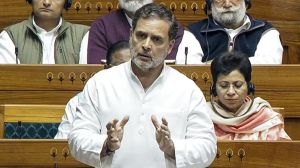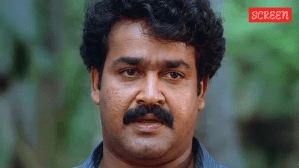Will To Power
Dalit author Manoranjan Byaparis first classroom was a jail library.
At Samanvay,the festival of Indian languages,author Manoranjan Byaparis session Shabd Badalte Hain Jeevan did not draw a crowd. They say that the most compelling stories are the ones that nobody hears. The 25-odd people who attended the session at the India Habitat Centre amphitheatre were told a story that sounded stranger than fiction,one of redemption,of a man who shed his shackles to escape into the good world of knowledge.
Byapari is perhaps the only rickshaw-puller-turned cook to have his works published by Oxford University Press. So when he says that learning a little made me hungry for more, there is a sparkle in his eyes and a conviction in his voice.
An important name in the world of Bengali Dalit literature,Byapari is yet to garner attention from the mainstream literary world. Adulation came after Professor Meenakshi Mukherjee translated his essay in the Economic and Political Weekly. The essay Is there Dalit Writing in Bangla? caught the attention of many. This was followed by more than 100 short stories and nine novels.
Growing up in a refugee camp in Bankuras Shiromanipur,being a published author did not even feature in Byaparis distant dreams. Post-Partition pain had engulfed his Dalit family. With no job options,my father became a daily labourer and had to travel far for work. My mother didnt have enough money to even cover herself properly, says Byapari,who ran away from home at 16. It was 1966 and Naxalism was at its peak. It wasnt hard for a young teenager with no dreams to get involved. Byapari became a jouster,getting himself into trouble,which eventually landed him in jail. I was crying one day when my cell mate showed me a plant growing out of a concrete wall. I wondered how that plant grew in a hostile environment. Thats when I decided to educate myself, says Byapari,who learnt to write the first letter of his life at 22. The jail library soon became a place of worship fro him. When he left after four years,he was a man who could read and write and was hungry for more.
Byapari became a rickshaw puller. Of the numerous tana rickshaws (hand-pulled rickshaws) in Kolkata,Byaparis came with books in the back peti. One day,he refused to take a woman to her destination,because he was engrossed reading Agnigarbha,a book of short stories by Mahasweta Devi,about cast,class and gender. One word that surfaced through various stories in the book was jijivisha. It had only been a few years since I began reading and writing,many words were difficult to understand, says Byapari. He finally agreed to take the woman to her house after the next rickshaw guy,too,refused. On the way,Byapari asked the woman the meaning of jijibisha. She said,Jeene ki ichha. I told her I enjoyed reading. She got off and scribbled her name and number on a piece of paper and told me to contact her if I wanted to learn more, says Byapari. The piece of paper read Mahasweta Devi. Byapari fell at her feet and wept. I was asking her the meaning of a word that she had used in her book. This incident turned my life around, he says.
Byaparis recent addition to his list of writings is his autobiography titled Itibritte Chandal Jibon,a discourse on discrimination faced by the neechi jaati in India,which was released at the Kolkata Book Fair earlier this year.
His writing career still doesnt help him make ends meet,so he cooks at a school hostel and writes in his spare time. I wish the government valued literature. It is convenient to get stuck in ones own pessimistic story. But,it is possible to change that narrative,to change things on record, says Byapari.







